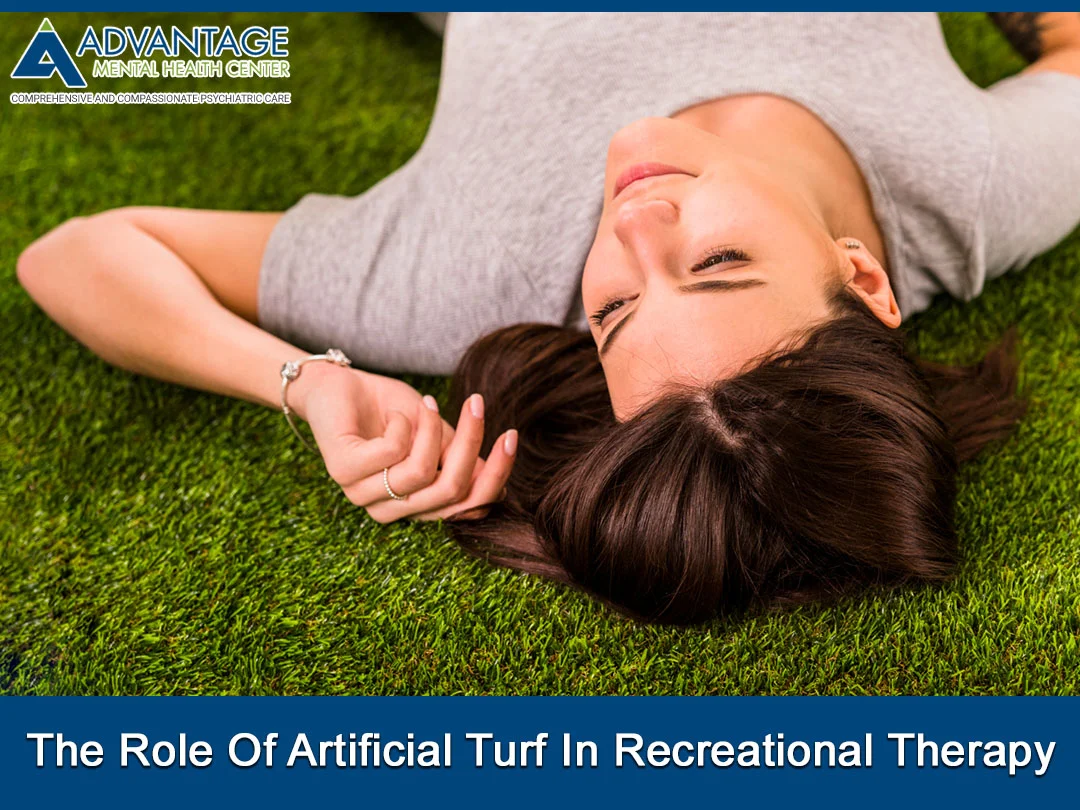Recreational therapy has long been an integral part of treating various mental health conditions, and the use of artificial turf in these programs is a developing trend. This expanded article offers a deeper exploration into how artificial turf is revolutionizing recreational therapy and its myriad benefits for individuals with mental health challenges.
Artificial turf, once primarily used in sports and residential settings, is now making a significant impact in recreational therapy. Its durability, low maintenance needs, and suitability for use throughout the year make it an excellent choice for therapeutic activities.
1. Safe and Supportive Spaces
Artificial turf’s non-slip surface reduces injury risk, particularly in rehabilitation where mobility is a concern. This safety feature makes it ideal for various therapeutic exercises and activities, ensuring a secure environment for patients to engage in physical therapy. Its uniform surface provides a reliable area for exercises, especially for those with balance issues or using assistive devices, enhancing the effectiveness of physical rehabilitation sessions.
2. Mental Health Benefits
The green, nature-like appearance of artificial turf contributes to mental well-being by creating a calming and relaxing environment. This aspect is crucial for patients dealing with mental health issues like anxiety and depression, as the semblance of nature can be soothing and reduce symptoms of stress. The visual appeal and tactile sensation of artificial turf can evoke a sense of tranquility, essential in therapeutic settings where creating a peaceful atmosphere is key.
3. Bringing the Outdoors In
In settings where outdoor access is limited, artificial turf helps simulate a natural environment. This is particularly beneficial in urban clinical settings where real green spaces might be scarce. By mimicking the outdoors, artificial turf can help patients feel more connected to nature, which is known to have therapeutic effects on mental health. This connection to nature can be particularly therapeutic for patients experiencing nature deficits due to their clinical setting.
4. Recreational Benefits
Offering a practical and low-maintenance alternative for outdoor activities, artificial turf encourages physical engagement. It enables a range of recreational activities that are essential for physical health, which is intrinsically linked to mental well-being. Activities like light sports, walking, and therapeutic exercises can be easily conducted on artificial turf, contributing to overall physical fitness and endurance.
5. Enhancing Urban Mental Health
In urban areas, artificial turf provides a crucial green space that can boost mental health, especially for active individuals. It brings the benefits of nature to urban settings, where access to natural green spaces might be limited. This is especially important in densely populated areas, where the lack of green space can impact mental health. Artificial turf offers an accessible and practical solution to bring nature closer to those in urban environments.
6. Diverse Therapeutic Activities
Artificial turf supports a variety of activities tailored to improve mental health conditions. From gentle yoga and meditation to more vigorous sports activities, it provides a versatile surface for different therapeutic needs. This diversity allows therapists to tailor activities to individual patient needs, ensuring a personalized approach to treatment.
7. Sensory Stimulation
The sensory experience of artificial turf, with its texture and natural appearance, can be particularly calming for individuals with sensory processing disorders or autism. This tactile stimulation can be an important part of sensory therapy, helping to ground patients and provide a sense of comfort and stability.
8. Social Interaction and Community Building
Artificial turf areas encourage social interaction, which is crucial for mental health. These spaces foster community building and provide opportunities for group therapy and socialization, helping patients develop social skills and build support networks.
9. Adaptability for Special Needs
Customizable to various needs, artificial turf areas ensure inclusivity in therapy sessions. They can be adapted for individuals with physical disabilities, providing a safe and accessible space for everyone.
10. Consistency and Routine
The all-weather nature of artificial turf ensures that therapeutic activities can be conducted regularly, providing consistency in treatment. This is key in mental health recovery, as regular and structured activities help in establishing routines and stability for patients.
11. Ecological Therapy
Artificial turf aligns with the principles of ecological therapy by simulating natural environments in therapeutic settings. This form of therapy uses the healing power of nature to enhance mental health, and artificial turf plays a crucial role in creating these therapeutic natural environments, especially in areas where access to actual nature is limited.
12. Innovative Program Development
The versatility of artificial turf opens doors for innovative recreational therapy program development. It allows for the creation of new and diverse therapeutic activities that cater to a wide range of mental health conditions, facilitating creative approaches to treatment.
13. Enhancing Patient Autonomy
Engaging in activities on artificial turf can empower patients, enhancing their autonomy and sense of control. This is crucial in the recovery process as it helps build confidence and a sense of self-efficacy in patients, contributing to their overall well-being.
14. Bridging Therapeutic Gaps
Artificial turf can bridge gaps in therapy by providing additional or alternative options for patients who may not respond to traditional therapeutic settings. It offers a unique medium for therapy, expanding the range of treatment options available to patients.
15. Research and Future Prospects
Ongoing research into the benefits of artificial turf in recreational therapy can lead to more evidence-based practices. As the body of research grows, it could pave the way for wider adoption in mental health treatment and further innovations in therapeutic practices.
The integration of artificial turf into recreational therapy programs offers numerous benefits, from creating safer environments to enhancing mental well-being through physical activity and connection to nature. As we continue to explore innovative approaches to mental health treatment, the role of artificial turf in recreational therapy shines as a beacon of versatility and effectiveness. The future of mental health treatment looks greener, thanks to these artificial oases that bring the therapeutic power of nature closer to those in need.
Picture Credit: Freepik


